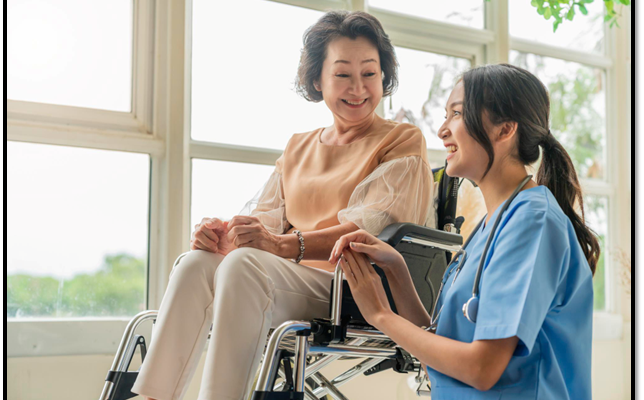What Are Home Caregivers?
Home caregivers are trained professionals who provide non-medical and sometimes medical assistance to individuals in their own homes. These services are especially critical for seniors, people with disabilities, or those recovering from surgery who prefer to stay in familiar surroundings instead of moving to assisted living or nursing facilities.
Home caregivers offer physical, emotional, and social support to enhance the quality of life and ensure safety for those in need.

The Role of Home Caregivers
Daily Living Support
Home caregivers help with everyday tasks such as:
- Bathing and grooming
- Meal preparation and feeding
- Medication reminders
- Mobility assistance
- Light housekeeping
Companionship and Emotional Support
Loneliness is a serious concern among the elderly. Home caregivers provide meaningful conversation, engage in hobbies, and accompany clients on walks or appointments.
Medical Support (When Qualified)
Some home caregivers are certified nursing assistants (CNAs) or home health aides (HHAs), capable of:
- Checking vital signs
- Assisting with medical equipment
- Providing wound care (under a nurse’s supervision)
Why Choose Home Caregivers?
Aging in Place
According to AARP, nearly 90% of seniors want to stay in their own homes as they age. Home caregivers make this possible by delivering personalized care in a familiar environment.
Cost-Effective Alternative
Compared to long-term care facilities, in-home care can be more affordable. The cost depends on the level of care needed, but it often saves money by avoiding unnecessary hospital stays.
Customized Care Plans
Home caregivers create individualized care plans tailored to the specific needs and preferences of the person receiving care.
How to Choose the Right Home Caregiver
Step 1: Assess Your Needs
Begin by listing the tasks you need help with—bathing, cooking, companionship, or medical support. Knowing your requirements helps narrow down suitable caregiver types.
Step 2: Decide Between Agencies and Independent Caregivers
Hiring Through an Agency
- Vetted and background-checked caregivers
- Replacement options when your regular caregiver is unavailable
- Insurance coverage and liability protection
Hiring Independently
- Potentially lower costs
- More flexibility in hiring
- Requires you to handle background checks, contracts, and scheduling
Step 3: Ask the Right Questions
When interviewing caregivers, consider asking:
- What certifications or training do you have?
- Can you provide references?
- How do you handle emergencies?
- Are you comfortable with [insert specific need]?

What to Expect: A Day in the Life of a Home Caregiver
Depending on the client’s condition, a typical day might include:
- Morning hygiene routine and breakfast prep
- Light housekeeping or errands
- Medication reminders
- Lunch preparation and companionship
- Afternoon walk or exercise
- Evening routine and medication check
Challenges Home Caregivers Face
Emotional Burnout
Caring for someone daily can be emotionally taxing. Agencies should provide respite care to prevent caregiver fatigue.
Physical Demands
Transferring clients from bed to chair or assisting in mobility can be physically strenuous. Caregivers often undergo specific training to manage these tasks safely.
Communication Barriers
Some clients may have cognitive issues like dementia or speech impairments. Compassion and patience are key.
Supporting Home Caregivers
To ensure sustainable and quality care, support systems must be in place:
- Training and continued education programs
- Access to mental health resources
- Family cooperation and open communication
Regulations and Certifications
In the U.S., caregiver requirements vary by state, but many roles require CPR certification and training approved by the state health department. Agencies are often licensed and inspected by state bodies.
For authoritative information, visit National Institute on Aging and Caregiver Action Network.
Internal Resources
- Our Services – Explore the full list of in-home care services we offer
- Caregiver Hiring Guide – Step-by-step manual for families
- Support for Family Caregivers – Learn how to maintain your well-being while caring for loved ones
Conclusion: Empowering Independence and Dignity
Home caregivers are not just service providers—they are companions, lifelines, and trusted support systems. By offering professional, compassionate care, they empower individuals to live independently with dignity and comfort.
Whether you’re looking for short-term recovery assistance or long-term elder care, understanding the role and value of home caregivers is the first step to making informed, confident decisions.
